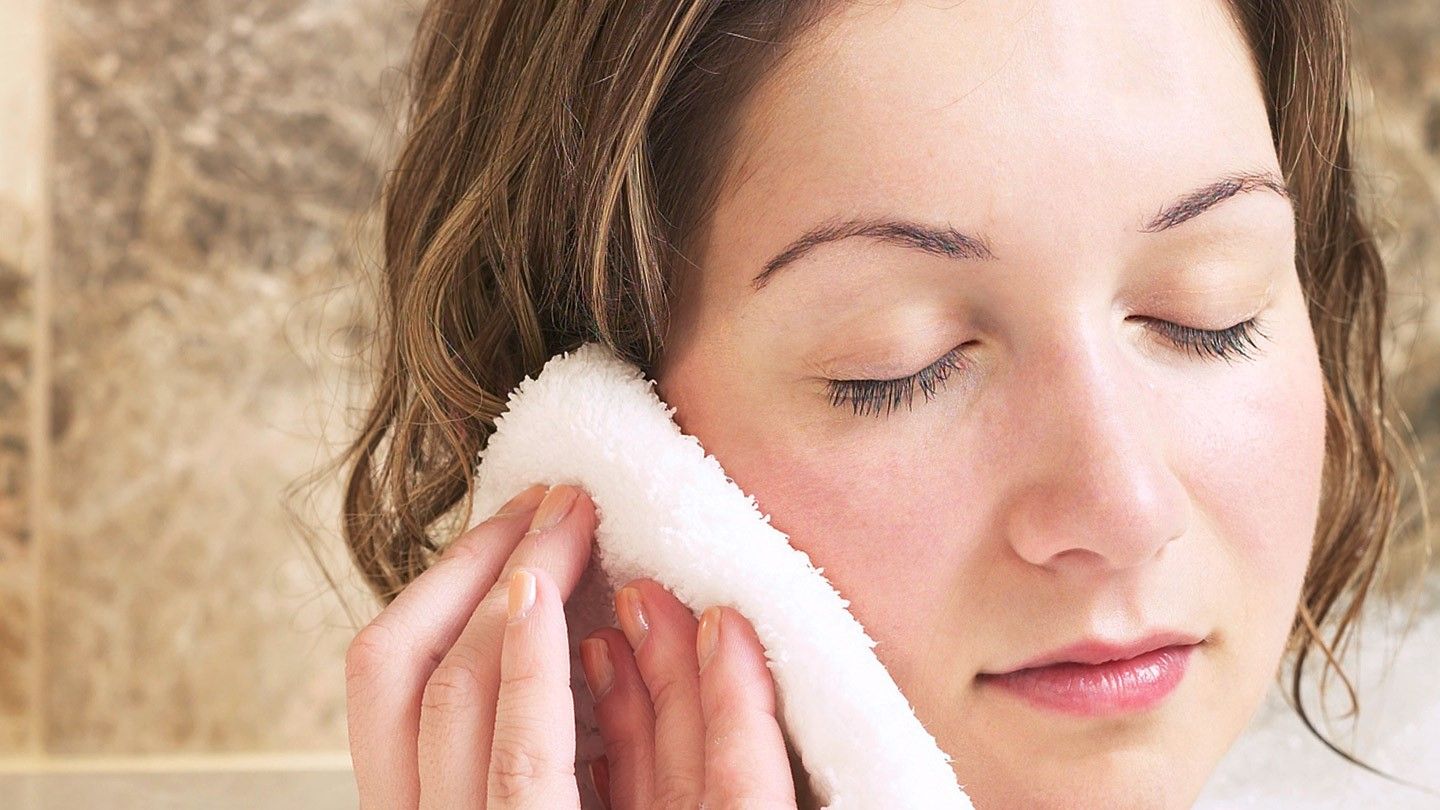If you’re looking to treat an earache without having to take expensive prescription medications, these five home remedies are some of the best options available. With just one simple ingredient in each, you can give your earache the relief it needs without having to worry about harmful side effects or dangerous interactions with other medications you might be taking. Try each of these out and see which one works best for you!
Use warm compress
One of the best home remedies is to use a warm compress. This helps reduce inflammation and alleviate pain. To do this, soak a washcloth or towel in hot water, wring it out and place it on the ear for about 20 minutes. You can also put some Vicks Vaporub onto the cloth before using it to help with congestion too.
If you don’t have a warm compress at home, you can use another cloth that is slightly moist with warm water. Make sure that it’s not too hot though as it could hurt your ear or cause damage. Also, never use warm water directly from a tap as it may contain bacteria and infect your ear further. If you need to be mobile, take a damp towel and run it under warm water in a sink. If you’re on-the-go or unable to get a compress of any kind, try taking an ice pack and put over your ear but make sure not to use something too cold. This should help reduce some of the inflammation.
Pain reliever
If you have an earache, a pain reliever can help to relieve the pressure and reduce pain. Ibuprofen is a popular option that’s available over-the-counter, but there are also prescription strength options if ibuprofen isn’t strong enough. Keep in mind that aspirin and other non-steroidal anti-inflammatory drugs (NSAIDs) should not be used if you have an ear infection or flu. Antibiotics will clear up a sinus infection, but won’t help with an earache caused by something else. If your earache persists or gets worse after taking medication, it’s time to call your doctor!
If you’re suffering from an ear infection, however, your doctor may prescribe a course of antibiotics. This helps to clear up any bacterial or viral infection in your middle ear and eustachian tube and is also likely to take care of any pain you’re experiencing. However, it’s important to note that antibiotics don’t work on fungal infections like swimmer’s ear or otitis externa (swimmer’s ear).
For most people, these remedies are effective at bringing down a painful and swollen ear quickly so you can get back to your normal life. If they aren’t working for you, it’s time to see a doctor who can examine your ears properly and recommend further treatment if needed.
Olive oil
If you are suffering from an earache, try a few drops of olive oil in your ear canal. The oil softens the wax and other debris inside your ear, which relieves some of the pain. Be sure to use a clean dropper or spoon to avoid transferring any bacteria into your ear.
If you are dealing with a sinus infection that is causing an earache, try using a cool mist humidifier to relieve the pressure on your head. You can also take ibuprofen or acetaminophen to reduce swelling and pain. And finally, make sure you are getting plenty of rest so that your body has time to heal itself!
If you have an earache, stay away from cotton swabs. Swabbing your ear will irritate it further, making your pain worse and possibly causing damage to your eardrum. Never put anything other than olive oil into your ear canal—even a doctor will tell you not to use hydrogen peroxide or any kind of medication in that area. Be sure to consult with a medical professional if you feel like your ear pain is more serious than just an ordinary case of an earache; don’t rely on home remedies alone! And finally, stay hydrated and keep stress to a minimum. Stress and dehydration can worsen any health condition, including pesky headaches and stubborn infections!
Neck exercises
If your ear pain is caused by muscle tension in the neck, try this exercise:
Sit or stand with your head balanced on your spine. Place one hand on your forehead and the other hand on the back of your head. Tilt your head back and then to each side. Relax as much as you can while performing these movements. Repeat three times in each direction and then stretch both arms up over your head without bending at the waist or tilting at the neck. Repeat this stretch three times, stretching a little further each time you reach overhead.
A warm cloth draped over the ears can provide temporary relief from ear pain, especially if it is accompanied by a nice cup of tea to soothe both body and soul.
Ginger
Grate a piece of fresh ginger and rub it over the ear that hurts. This will help provide relief from pain in your outer ear canal as well as your middle ear (the eustachian tube). When you hear water drain from the other ear, that means that the eustachian tube has opened up. Repeat this process until you feel relief or have done 10 rounds; whichever comes first.
Although it has not been proven scientifically, some people believe that eating ginger helps with nausea. If you have some, there are a few ways you can eat ginger to help your earache. You can grate a piece of fresh ginger and use it as a warm compress on your ear that hurts or even chew on a piece of raw ginger to relieve pain from an ear infection. Alternatively, if you want to taste but don’t want to burn yourself, try drinking hot tea infused with fresh grated ginger instead.
Garlic
For earache relief, you can try garlic. It may sound a little strange but it is a natural antibiotic and will help with the swelling and pain.
- Place 2-3 cloves of raw garlic in the palm of your hand.
- Mash the garlic into a paste with your fingers or cut them up finely to make it easier to apply.
- Apply the garlic paste directly to your ear canal, rubbing it in thoroughly on both sides of your ear lobe as well as inside your ear canal. 4. Put some water in your ear canal to help dissolve the garlic if needed. You can use a dropper, syringe or even squirt water from a spray bottle.
- Keep it there for at least 10 minutes before washing off with lukewarm water.
- Repeat this process three times per day until you feel better (about 24 hours).
Hydrogen peroxide
Earaches can be excruciatingly painful, and people often seek out home remedies to help alleviate the pain. Hydrogen peroxide is one such remedy and can provide relief in as little as 15 minutes. Here are a few ways to use hydrogen peroxide to relieve an earache. *Take a cotton ball or swab dipped in 3% hydrogen peroxide and place it inside the affected ear canal.
Since hydrogen peroxide is a compound, it may cause an allergic reaction in some people. To avoid getting a bad reaction or having your ear burn from using too much, try diluting it by mixing 1/2 teaspoon of 3% hydrogen peroxide with 3 teaspoons of water. If you are concerned about possible damage to your eardrum, check with your doctor before trying any home remedies. Note that you shouldn’t use hydrogen peroxide if you have certain medical conditions like hemophilia or diabetes, so consult a medical professional before trying these methods.
A comfortable and effortless sleep position
Some people find that a comfortable and effortless sleep position helps to avoid ear ache. One way to do this is to position your head in a neutral or upright position. This will keep the fluid in your ears from building up and potentially causing pressure, which can lead to ear aches. A good way to figure out if you are sleeping in the right position is if you wake up feeling refreshed, not sluggish or tired. You may also want to consider using a pillow when you sleep, as this could help relieve pain.
If you do have an ear ache, there are a few ways you can get relief. For example, applying heat to your ear may help with pain, as well as using a warm compress and placing pressure on your ears. Another trick is to pinch your nose and swallow water in order to help reduce pressure. S













